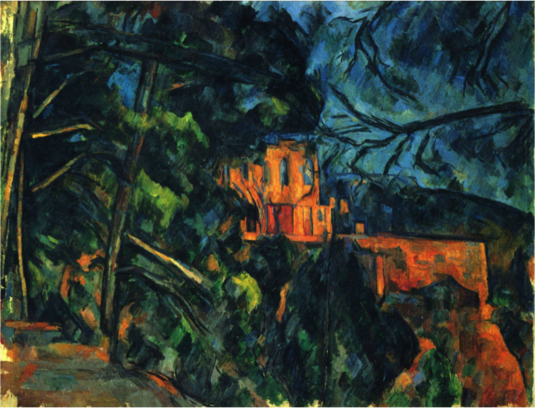Ambivalences and Transformations of the Adventure in the ‘Bildungsroman’ and the Novella (Goethe, Keller, Thomas Mann, Musil)
Modern German Literature, LMU Munich
Principal Investigator: Prof. Dr. Inka Mülder-Bach
Postdoctoral researcher: Dr. des. Oliver Grill
Cézanne, Château Noir, 1900–1904. Washington (D.C.), National Gallery of Art.
The project intends to illuminate the significance of the narrative pattern of adventure for modern literature by focussing on German novels which either are paradigms of the genre of the Bildungsroman – as Goethe’s Wilhelm Meisters Lehrjahre and Keller’s Der grüne Heinrich – or testify to an intensive dialogue with its tradition – as Thomas Mann’s Der Zauberberg and Musil’s Der Mann ohne Eigenschaften. While the narrative of Bildung is generally considered to be a counternarrative and critique of the adventure pattern, this project starts out from the observation that the relation between the Bildungsroman and the adventure is marked by repulsion as well as by attraction. This ambivalence is a constitutive feature of the novels themselves, but it is also characteristic of the history of the genre, which both detaches itself from the adventure and orients itself towards it.
In exploring this ambivalence the project will not only read the Bildungsroman in the light of its relation to the adventure narrative; it also and inversely aims at gaining insight into the adventure by means of the Bildungsroman. For in the narration of adventurous events and experiences the novel reflects on its own prehistoiry. The Bildungsroman is thus not only a rewarding subject for a philology of adventure. In a certain manner it engages in this philology itself. One aspect of the adventure pattern which is brought back to attention already in the Lehrjahre is its affinity to the novella and other small narrative forms. In order to study this affinity the project will analyze selected novellas of the aforementioned authors in addition to their novels.


